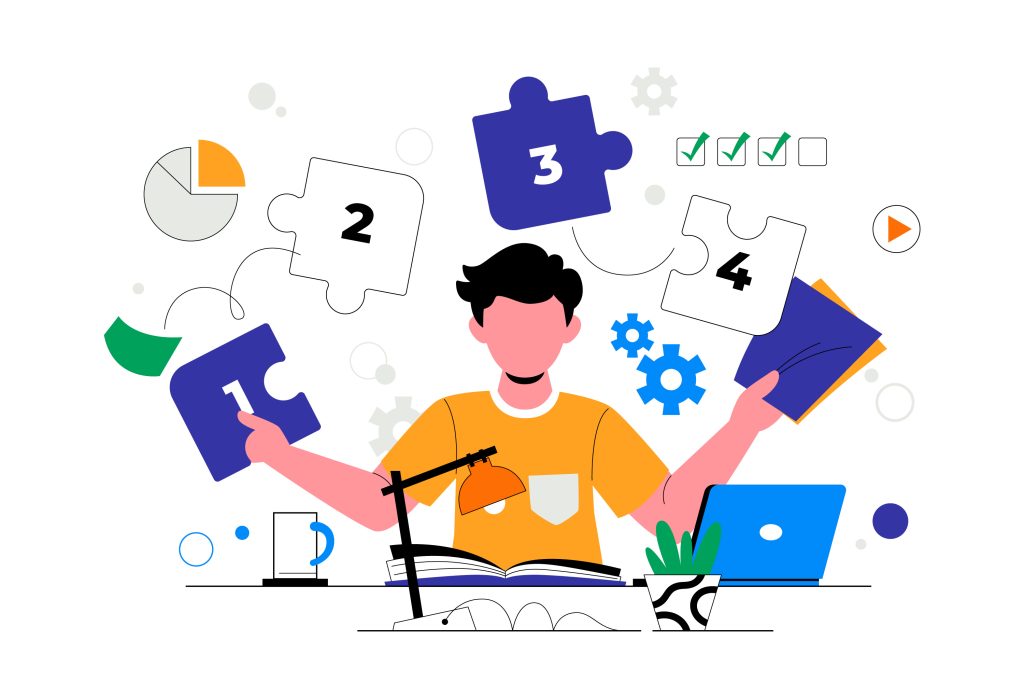Learning skills are necessary for freshers to master data, design and digital technologies and to remain competitive in the technical industry.
Stepping into the job market today feels different. One degree in engineering or management is valuable, but it is no longer enough. Recruitors now scan resumes for some extra -sclery skills that show that you can change, grow, and keep pace with change.
Freshers who mix technical know-how with professional skills like communication and problem-solving are the ones who shine. If you’re just starting out, here’s how to prepare.
Visit Us >>>> https://www.impacteers.com/home
1) The Rise of Data Skills
Data is everywhere—marketing, healthcare, banking, even sports. For freshers, being “data literate” is now as important as knowing how to write an email.
Must-learn basics:
- Excel or Google Sheets for analysis.
- SQL for handling databases.
- Power BI or Tableau for visualization.
You don’t need to be a data scientist, but employers expect you to at least understand numbers and explain them.
2) Digital Design as a Career Starter
Think design is only for creatives? Not anymore. From app interfaces to presentations, design skills are valued everywhere.
Freshers with a touch of design knowledge stand out.
- Canva for simple visual work.
- Figma for product design basics.
- UX design principles for user-friendly thinking.
Even engineers benefit. A well-designed presentation can explain a project better than 20 pages of text.
3) Digital Literacy: The Everyday Superpower
Being digitally fluent means more than knowing how to browse. It’s about using tools smartly.
Freshers who are comfortable with:
- Cloud platforms (Google Drive, OneDrive).
- Project tools like Trello, Slack, or Notion.
- Online research skills.
These basics make teamwork smoother and careers faster.
4) Why Learning Skills Matter More Than Marks
Marks show memory. Learning skills show growth. Employers prefer someone who can adapt to new tools over someone stuck in old methods.
Example: A fresher who learns a new CRM tool in a week impresses recruiters more than one who got 90% but resists change.
That’s why continuous learning is now a career survival strategy.
5) Balancing Technical and Professional Skills
The best professionals are hybrids. They mix tech with human touch.
Here’s how they balance:
| Technical Skills | Professional Skills |
| Data analysis tools | Communication |
| Programming (Python, Java) | Problem-solving |
| UI/UX design basics | Teamwork |
| Certifications in cloud/data | Time management |
| Skill assessment practice | Leadership |
A fresher with this balance is “job-ready” from day one.
6) Communication: The Career Catalyst
You may know ten coding languages, but if you can’t explain your work, growth stops.
Tips to improve:
- Practice explaining projects to non-technical friends.
- Join online training in public speaking.
- Share weekly project updates on LinkedIn.
Strong communication builds visibility, trust, and faster promotions.
7) Online Education as a Launchpad
Gone are the days when learning stopped with college. Online education platforms give freshers tools to upskill without waiting.
Popular routes:
- Coursera, Udemy for certifications.
- LinkedIn Learning for short professional skills courses.
- Industry-specific certifications in cloud, AI, or management.
A few certifications make your resume look active, not static.
8) The Role of Certification in Careers
Employers love proof. Certifications do that. But don’t just collect them—choose those that connect with your goals.
- Engineering grads → Cloud, AI, Data certifications.
- Management grads → Business analytics, leadership.
- Designers → UX, UI, Adobe suite courses.
Certifications don’t replace skills, but they show commitment to learning.
9) Career Coaching and Mentorship
Sometimes freshers don’t know where to start. That’s when career coaching helps.
A coach or mentor can:
- Run a skill assessment test to map strengths.
- Recommend the right mix of online training.
- Teach how to showcase skills on resumes and LinkedIn.
Mentorship adds clarity where confusion rules.
10) The Skill Assessment Advantage
Assessment isn’t just for exams anymore. Companies use it to test both technical and soft skills.
Common tests include:
- Coding tests for developers.
- Case studies for management roles.
- Group discussions to check communication.
Freshers who practice assessment tests feel less nervous and more confident during hiring.
11) LinkedIn: More Than a Resume
Recruiters live on LinkedIn. It’s where careers are built.
How freshers can use it:
- Add certifications to profiles.
- Share small learnings weekly.
- Join industry groups to connect with experts.
A LinkedIn profile that shows skills, not just degrees, attracts real attention.
12) Learning Skills in Action: A Fresher’s Story
Take Rohan, a recent engineering graduate. His grades were average, but he invested time in:
- Data certifications.
- A Figma course.
- Weekly LinkedIn posts on small projects.
Within six months, he cleared an assessment test at a top firm. His secret wasn’t marks—it was his learning skills.

Conclusion: The Freshers’ Winning Formula
In today’s world, the formula is simple: data, design and digital skills + strong professional skills = success of career.
Employers are not asking for perfection. They are asking for freshers who are ready to learn, adapt and contribute. With the correct mixture of learning skills, certificates and practice, you do not just pursue a career – you build them.
About Us >>> https://blog.impacteers.com/
FAQs
1. What are the most important learning skills for freshers?
Adaptability, communication, digital literacy, and the ability to pick up new tools quickly.
2. Do certifications guarantee jobs?
No, but they boost credibility. Pair them with projects and visibility on LinkedIn for best results.
3. How do skill assessments help in careers?
They highlight strengths and weaknesses, guiding training efforts. They also prepare you for real hiring tests.
4. Which is better: marks or learning skills?
Marks may open doors, but learning skills help you survive and grow in real careers.
5. How can freshers balance tech and soft skills?
Follow a routine: one tech course per quarter, one soft skill practice (like communication training), and share progress online.




Post Comment